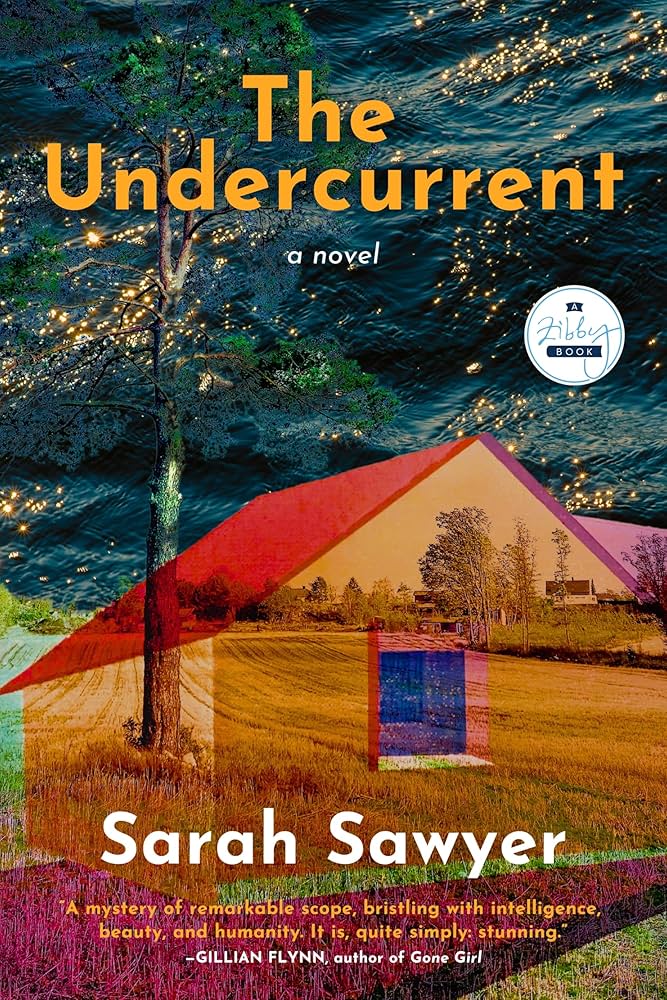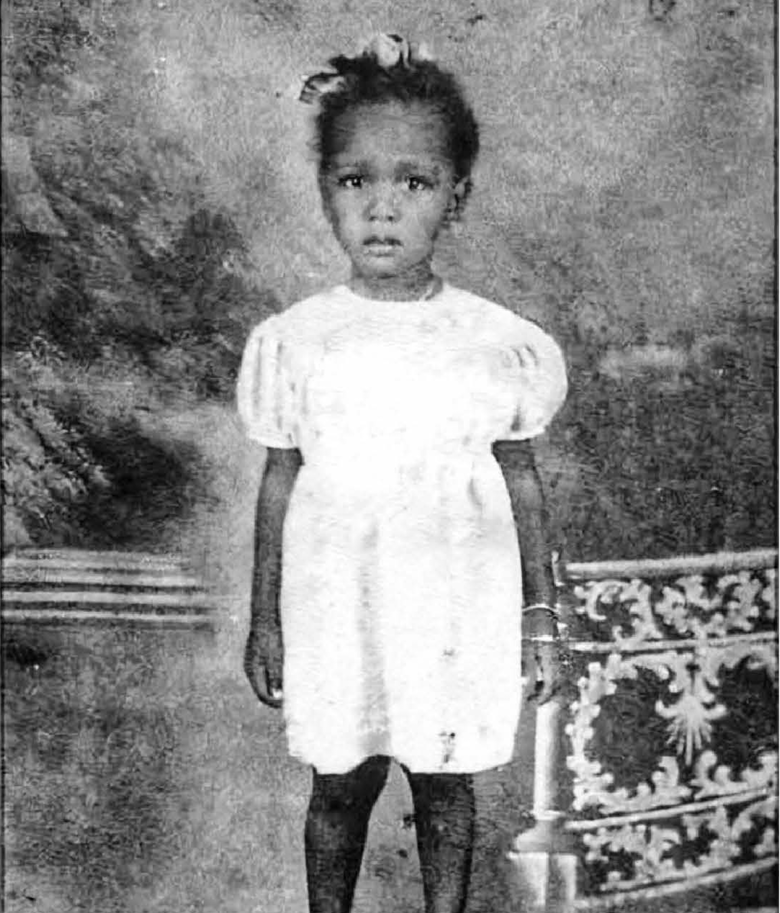By SARAH SAWYER

This piece is excerpted from The Undercurrent by Sarah Sawyer ’97, a guest at Amherst College’s LitFest 2025. Register for this exciting, 10th-anniversary celebration of Amherst’s literary legacy and life.
Austin, Texas
1987
A girl leans on a metal guardrail at the edge of a brown field. She will not stand here again. She knows this, so she is trying to notice everything: the tall stalks of grass turning into thick stitches of coral and gold, the sun a dark orange marble rolling past the clouds. When she looks down, she sees her toes curling in the gravel, the dents from the hot guardrail burning the soft undersides of her forearms.
If she stays here, facing the field, she can’t see the bulldozers, perched like yellow vultures in the cul-de-sac behind her.
She is not allowed to go past the guardrail into the field, even if no one is watching. She has, obviously, because she is thirteen, not a baby, and because cutting across is a shortcut to school, and because she loves this field: its unexpected dips and anthills, the birds that dive open-mouthed across its surface, the snakeskins and velvet butterfly wings she finds on its winding paths. In spring, it is covered with bluebonnets that spread in front of her, undulating and tipped in white, just as she imagines waves might be. When they bloom, she thinks of her fifth-grade Texas History unit, the textbook splayed on her wobbly desk, twenty hand-drawn maps lining the classroom walls. They studied oil first, then gold, then the vaqueros and the missionaries, and then her favorite, Mrs. Lady Bird Johnson, driving from Dallas to Austin to San Antonio, tossing seeds out of the window of her Lincoln Continental with long, glamorous arms. The girl does not know how the flowers got from Mrs. Johnson’s car to this field, which touches only some boring, dead-end streets speckled with ugly tan ranch houses, but here they are, all the same.
On spring evenings, the girl likes to balance on the guard-rail and watch the breeze brush across the field, painting it cornflower, then navy, and back again, as the clouds billow and roll overhead. Now that it is August, there is no wind, and the sunbaked field has only sharp crabgrass and anthills, but the girl doesn’t mind. The summer field is her favorite. She loves the way the mice poke their heads from their burrows if she stands still enough for long enough. She loves the way the field changes but never forgets itself.
Today, she is pretending that it belongs to her.
Nothing belongs to her, though. Not even her own street, which stretches out behind her in a long, snaking line that touches the only places she is allowed to go: her house, her school, the Dewberry Market, the pool. Her father has traced the routes for her many times on the map they keep in the junk drawer in the kitchen, his finger a slow vacuum swallowing the streets on either side as he makes sure she has understood. She does understand. There are rules. She can’t go past the guardrail to play in the field. She can’t curl like a pillbug inside the abandoned refrigerator that huddles in a weedy corner of her backyard. Or crawl inside the giant concrete culvert that runs beneath the field and empties into Shoal Creek, then the Colorado, then the turquoise waters of the Gulf. She can’t close her eyes and cool her back on its damp walls. She can’t read too much or too little. Or play pretend. Play sports. Talk to herself. Shout.
Because of the map in the junk drawer, she knows that directly across the field, over the grassy hump of the culvert and the tufts of brown grass, there is another street, identical to hers. And because of her father’s low, urgent voice on the telephone, she knows that tomorrow, the bulldozers that lurk in the cul-de-sac will rip a new path through the tangled brush with their sharp beaks. Dust and the tang of asphalt will fill the air. They will join the two lonely streets together, and the mice will disappear, and the tall grass, and maybe the bluebonnets too.
Probably the girl will be allowed to ride her bike from here to the other side of the neighborhood. The new street will be hers, too, after all. But the field she loves will be gone.
The note she wrote at the dining room table just after dinner is crumpled and damp in her fist. She smooths it carefully on her thigh, refolds it, and shoves it into the waistband of her shorts. With a small grunt, she hops onto the guardrail. Now she can see the whole neighborhood, everything she knows, stretching out on all sides. The field. The dark green cypress trees by the fence. The highway, a glinting white line in the distance. The houses on the other side of the field, turning to blurry slabs of beige as the light fades.
Even though her father has never said so, not exactly, the girl knows that the field is off-limits because of the boys. They are there every day, not all of them, but always at least two or three, loud enough sometimes that she can hear them from inside her house, and so can her father, who frowns in her direction when their voices filter through the windows. “Animals,” he mutters. And he’s right, in a way. They are a pack, like puppies, like wolves. When they come to the field, they enter from the opposite side in a line and huddle in the darkness between the lopsided wooden fence and the cluster of cypress trees. Their elbows are sharp triangles, their torsos too long. They remind her of the overlapping figures on the urns she has seen on school field trips to the museum at the university, always the same orange and black, always in motion and frozen at the same time, like they are trapped in amber.
There is always a tall one, with black hair. And sometimes, if she is lucky, she sees the one she likes, the one with brown curls bending around the edges of a burnt-orange baseball hat. Once, he stepped out of the line of trees, his hand raised in the air. He wore his hat pulled so low that she couldn’t see his face, but she could imagine it anyway: a kind face, a slow smile. Before she could raise her arm to wave back, he was gone, and then she thought she heard two sharp barks of laughter that made her cheeks burn.
He never waved to her again. But once, on her way back from the bathroom at school, she saw him running down an empty hallway just before the fire alarm went off. She does not know his name. All she knows is that her father is wrong. He is not a wolf. He is not an animal at all. He is only a boy.
She wonders if he knows about the bulldozers. She wonders if he loves the field the way she does.
The girl shapes her body into a star, then a crane, then a star again. She is Nadia Comǎneci, her arms fluttering up and down like they are made of white feathers instead of bones. She can feel the heat of the guardrail rise in the marrow of her shinbones as she dares herself to stand in an arabesque for twenty seconds, then twenty more. It rained an hour ago, huge swooping sheets that emptied the neighborhood and made the asphalt steam once it was gone. Now water shines like spilled mercury on the oiled surface of the dead-end street behind her, and shivering lines of fire ants stream from the field to fringe the edges of the new puddles. The smell of crushed honeysuckle is everywhere. Everyone is inside, eating dessert or turning on the evening news.
The girl, though, is waiting.
She is outside because she wants to practice her routine one more time before the bulldozers ruin everything. Because she wants to say goodbye to the field. Because the rain has finally cooled the air, and because she has made a decision: if the boy with the curly hair comes today, she will go to the fence and hand him the note. Maybe she will even talk to him. So she is waiting, pretending to wade through the missing spring blue-bonnets, brushing her hands over their invisible white tips. She keeps her eyes on the fence.
Arabesque, hop, hop, crane, star, cartwheel dismount. She sneaks another glance at the field, but no one is there. The street behind her is quiet. The field is a deep golden color, like a jar of dark syrup held to the light.
Somewhere far away, a dog barks. The streetlights will come on soon, and her father will open the screen door and call her name. She might not see the boy tonight, but she can leave him the note. He will come to say goodbye to the field, just like her, and he will find it. She slides on her flip-flops.
Now, she tells herself.
————————
Up close, the fence is smaller than she thought it would be. It is not solid gray like a child’s drawing, but splintered and polka-dotted, with knots as large as eggs. There is no one there, so she crouches low in the space between the cypress trees and the fence, her arms breaststroking her body into a tunnel of shadow and cool, packed dirt. This is where the boys stand together, talking, laughing. She inhales deeply, nostrils flaring. Her heart is pounding. She wants to lie down, to wait for the boy, but the ground is flecked with boogerspit and cigarette butts, and it is getting dark, so she doesn’t. She rolls up the note, like an ancient scroll, and slides it between two splintery slats.
The air is thick, still. Everything is the same grayish blue now: the fence, the line of trees, the dirt. She braces herself for the distant sound of her father’s voice as she leans her head against the fence, poking her fingers into the holes where the knots have fallen away.
The note is a stupid idea. It’s getting dark and the boy hasn’t come. He will probably never find it. Or maybe one of his friends will, and they will make fun of him. Or the bulldozers will bury it, deep beneath a pile of dirt and uprooted grass, before he ever reads it.
But the idea of him unrolling it, smiling a little as he sits on the edge of his bed, pressing it flat on the thigh of his jeans, makes her feel happy. Like her body is a balloon, filling with air.
A warm, wet breeze is moving across the field now, the dry grass waving reluctantly in its wake. What if the note blows away before he comes to the fence again? What if it rains again, and the ink runs, and her words disappear? She looks around for something heavy, a rock maybe, but there is nothing, so she takes off her flip-flops and wedges the note between them, like a sandwich. It is hard to stuff the thick bundle back between the fence slats, but now she knows the note won’t blow away. She leaves a little flag of paper sticking out so he will see it.
She is picturing his face, trying to imagine the shape of his hands, when she hears a scratching sound, as if a bird is settling in the branches. Then, a voice. A flicker of light.
She scrambles away from the fence and bolts back toward the guardrail, her feet heavy and slow. The edge of the field seems far away now, as if the coming darkness has distorted the distance.
She trips a little at the beginning of the hill that leads down to the opening of the culvert. When she reaches the flat concrete at the bottom, she crouches, panting. She could crawl inside, where he won’t be able to see her. The dark mouth of the drain is as wide as her body. It breathes its cool dampness on her shoulders.
If he finds the note, she will know it, somewhere in the palms of her hands, the soles of her feet. She is sure of that. But she wants to see his face, here, the way she has imagined, before the field and the fence and the guardrail are gone for-ever. She steps away from the culvert and crawls partway up the hill. Her bare feet squish in a thin layer of mud.
He is here.
He is walking out of the line of trees, toward her. It is the same scene she pictured, his long legs moving fast through the dry grasses, swish, swish, his eyes fixed on hers. Her mind is whirling, her ears roaring. She is about to say something—what? Hello? Would that be enough?—when he opens his mouth. For a moment, he is still too far away for her to hear what he is saying. The light is dim, but she can see that he is frowning, running.
Then, suddenly, she can hear him.
“Go,” he shouts.
He is close now. Almost here. He flushes the resting birds from the brush as he runs, and they fly at the girl like bats. He is a black painting on an evening-dark urn. Hercules and the birds, she remembers.
She should be afraid, but she isn’t.
It’s only that she can’t decide which way to go.
This excerpt from The Undercurrent was used with permission from the publisher, Zibby Books.
Sarah Sawyer ’97 is a high school English teacher at a boarding school in Western Massachusetts, where she lives with her husband and two children. She is a graduate of Amherst College and Middlebury’s Bread Loaf School of English. The Undercurrent is her first novel.



